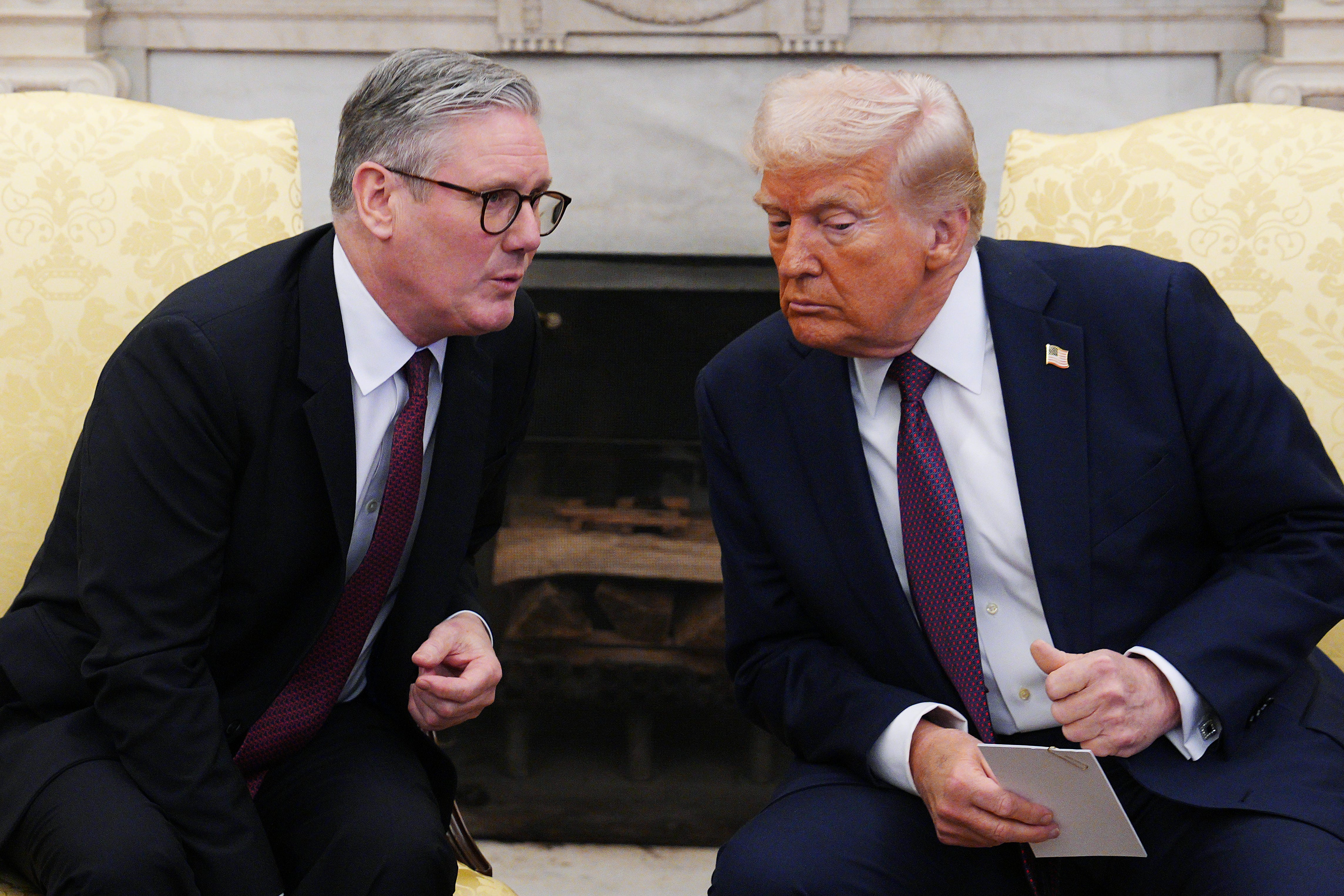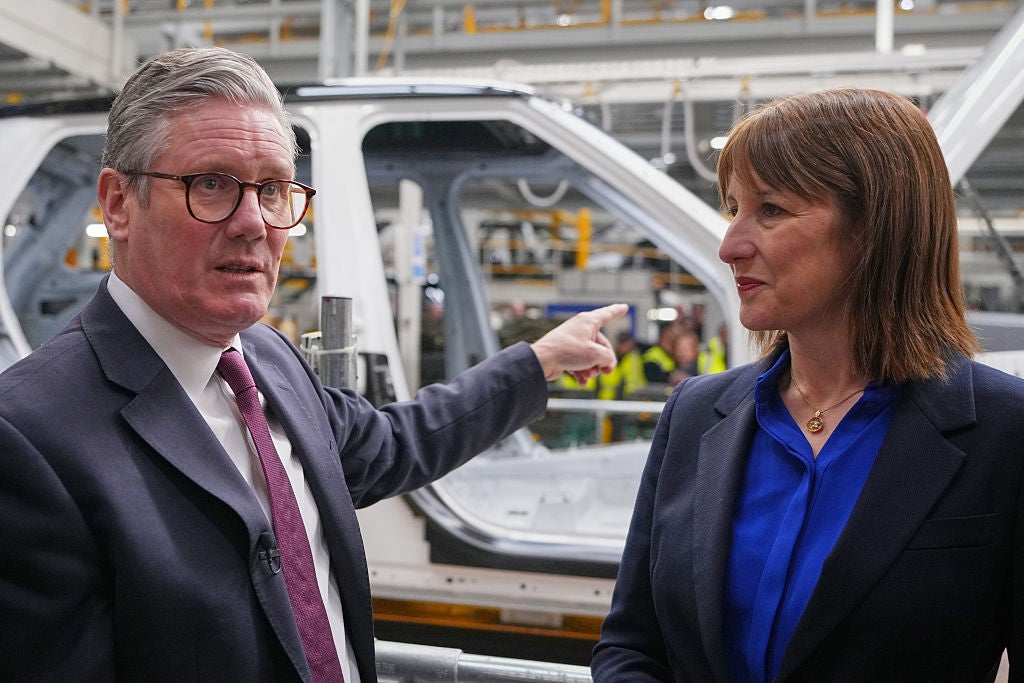ARTICLE AD BOX
Donald Trump is poised to unveil a “major trade deal” with the UK on Thursday, the culmination of Sir Keir Starmer’s months-long charm offensive towards the US president.
A month after his so-called Liberation Day tariffs began to bite, Britain is desperate for a carve out from the 25 per cent levies on its steel and car industries.
The deal will be a major boost for the prime minister, coming hot on the heels of a trade agreement between the UK and India this week.

But any deal with the US will come with trade-offs, with a key focus for the Americans being access to Britain for tech companies whose bosses are allies of the administration.
Here The Independent looks at what is likely to be in a trade deal ahead of its announcement on Thursday.
What will the UK get?
The UK is hoping for an exemption from Mr Trump’s 25 per cent levies on steel, aluminium and cars.
Exporters have been lobbying ministers hard over the impact of the tariffs, which forced Jaguar Land Rover to suspend exports to the US last month.
Britain’s beleaguered steel industry has also warned the US president’s tariffs pose further challenges for the sector. “They couldn’t come at a worse time,” Gareth Stace, director general of the UK Steel trade association said when they came into force.

Around 5 per cent of UK steel exports and 6 per cent of aluminium exports go to the US, according to the government.
While Britain hopes for an exemption from the higher 25 per cent tariffs, the trade deal is unlikely to see Mr Trump’s baseline 10 per cent tax on all imports lifted for the UK.
What will Britain give up?
One of the biggest goals of US negotiators has been to win concessions on Britain’s digital services tax (DST), paid by overseas search engines and social media sites on revenues from the UK.
It would be a boost to major American firms such as Amazon, Facebook owner Meta and Google owner Alphabet.
One mooted change would be to lower the headline rate paid by the US tech giants, while at the same time applying it to companies from other countries to make up the shortfall.
It would mean no tax income would be lost from the levy overall, with the DST currently raising £800m a year.
The government has also reportedly offered to lower tariffs on American chicken, beef and other meats, in a move which could further inflame tensions between Labour and farmers.
Are there any red lines?
A consistent red line in negotiations has been food standards, amid fears a trade deal could open Britain’s doors to hormone-injected beef and chlorinated chicken.
Business secretary Jonathan Reynolds and the chancellor have both ruled out lowering Britain's food standards to get a deal over the line, in a boost to struggling farmers.
What don’t we know?
Industries who will be watching Mr Trump’s Oval Office announcement closely on Thursday include the film and TV industry and pharmaceutical industry.
Mr Trump has threatened to levy 100 per cent tariffs on films made outside America, which the PM has been warned would devastate film and TV production in the UK.
British officials have been locked in talks with US counterparts since Mr Trump outlined the plans, with a view to exempting Britain from the levies.
Officials have also been desperately trying to exempt British firms from a fresh threatened 25 per cent tariff on pharmaceuticals produced abroad.
The measure would have a huge impact on UK giants GlaxoSmithKline and AstraZeneca, and negotiators are racing to find a carve out.
What is it not?
The key point to remember is that Thursday’s trade deal is not the long sought after post-Brexit trade deal with the US, chased by successive prime ministers.
The deal is likely to have a narrower focus than the wide-ranging agreement struck with India on Tuesday.
Talks are likely to continue about a more ambitious agreement in the long run, but Thursday’s deal is expected to ease the immediate pressure of Mr Trump’s trade war.









 English (US) ·
English (US) ·